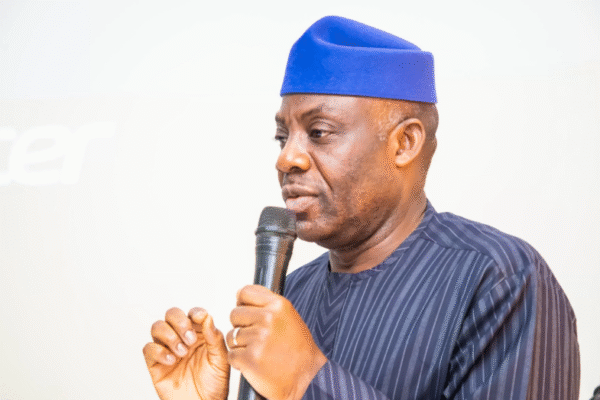
FG To Replace Chalkboards With Smart Boards In Nigerian Schools By 2027
The Federal Government has announced plans to replace chalkboards with smart boards in all schools across Nigeria by 2027, as part of a major push to digitalize the country’s education system. Minister of Education, Dr. Olatunji Alausa, made this known during a ministerial roundtable in Abuja, reaffirming President Bola Ahmed Tinubu’s administration’s commitment to bridging the digital gap in schools and improving the quality of teaching nationwide. Alausa revealed that the transition would begin with the full digitalization of the annual school census in 2026. He disclosed that over 60,000 tablets have already been distributed to students in Adamawa, Oyo, and Katsina States under the Airtech (Amazon Web Services) and BESDA initiatives, while another 30,000 devices are expected soon. He noted that the government recently launched its first smart board, adding that the goal is to equip every school in Nigeria with one by 2027. “This is how we can deliver high-quality education to every child, regardless of where they live or their parents’ background,” he said. The minister explained that the introduction of smart boards would replace traditional chalkboards, creating more interactive classrooms that allow teachers to integrate multimedia, digital textbooks, and real-time participation from students. Alausa also expressed concern about Nigeria’s alarming school dropout rate, citing data from the Nigeria Education Management Information System (NEMIS). According to him, of the 30 million pupils recorded across 21 states, only six million continued to senior secondary level — meaning nearly 24 million dropped out. “The data we’re seeing is alarming,” he said. “Between primary and junior secondary school, we lose about 10 to 20 million children, and another four million before senior secondary. But now that we can see these figures, we can act on evidence and track the impact of our interventions.” He further explained that every student’s biometric information is being uploaded to a digital platform to improve tracking and data-driven planning. “It’s no longer manual. Paper will be completely phased out,” he said, noting that WAEC and JAMB data would also be integrated into the system. The minister commended UNICEF for its technical support and President Tinubu for his political and financial backing of the education reforms. Executive Secretary of the Universal Basic Education Commission (UBEC), Aisha Garba, added that the commission has fully embraced digital technology in its operations, classroom teaching, and ongoing efforts to modernize public schools across the country.

